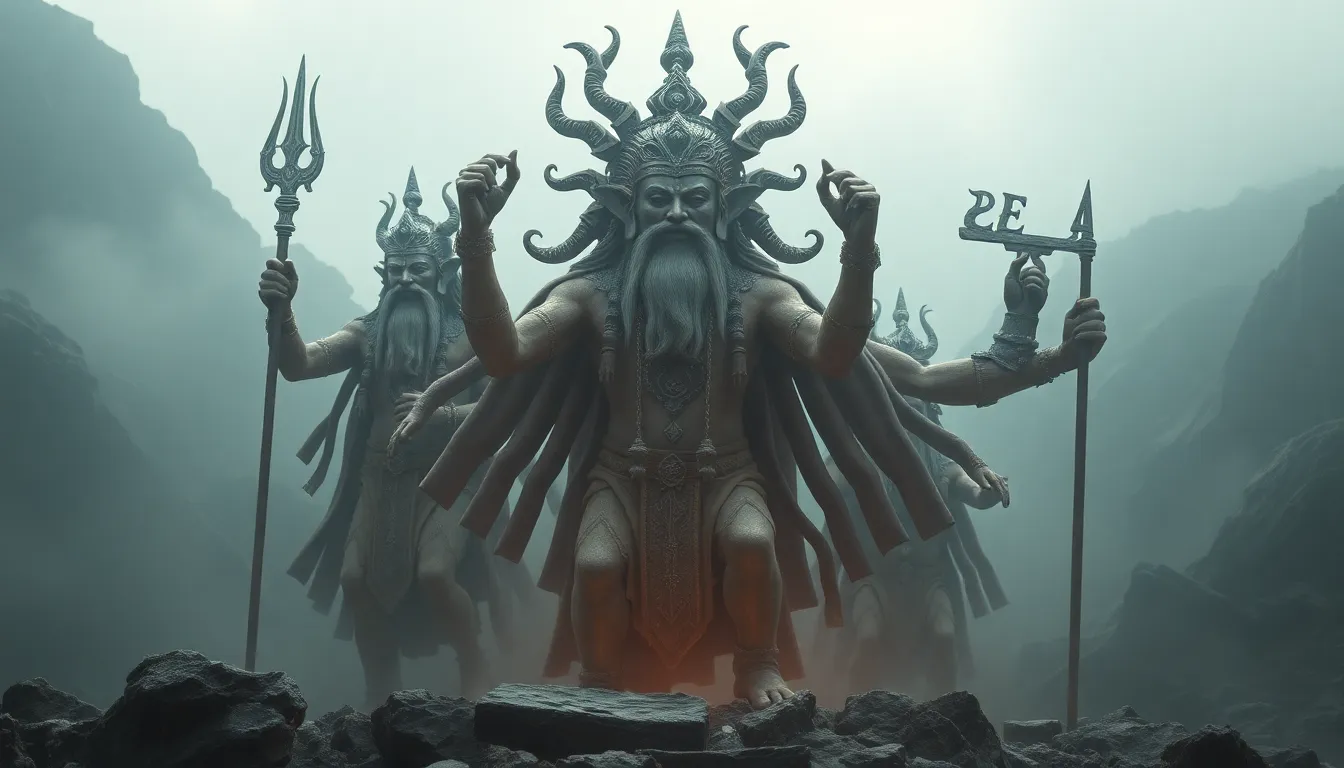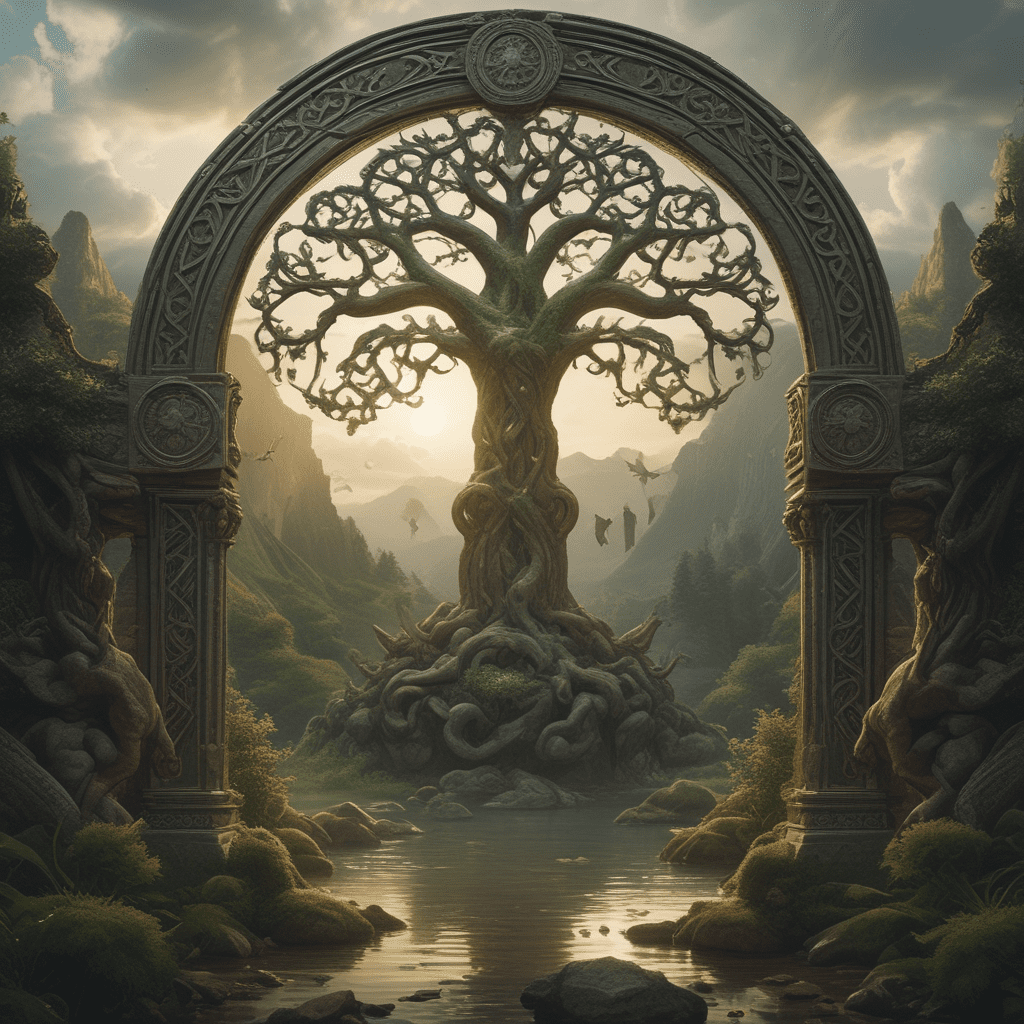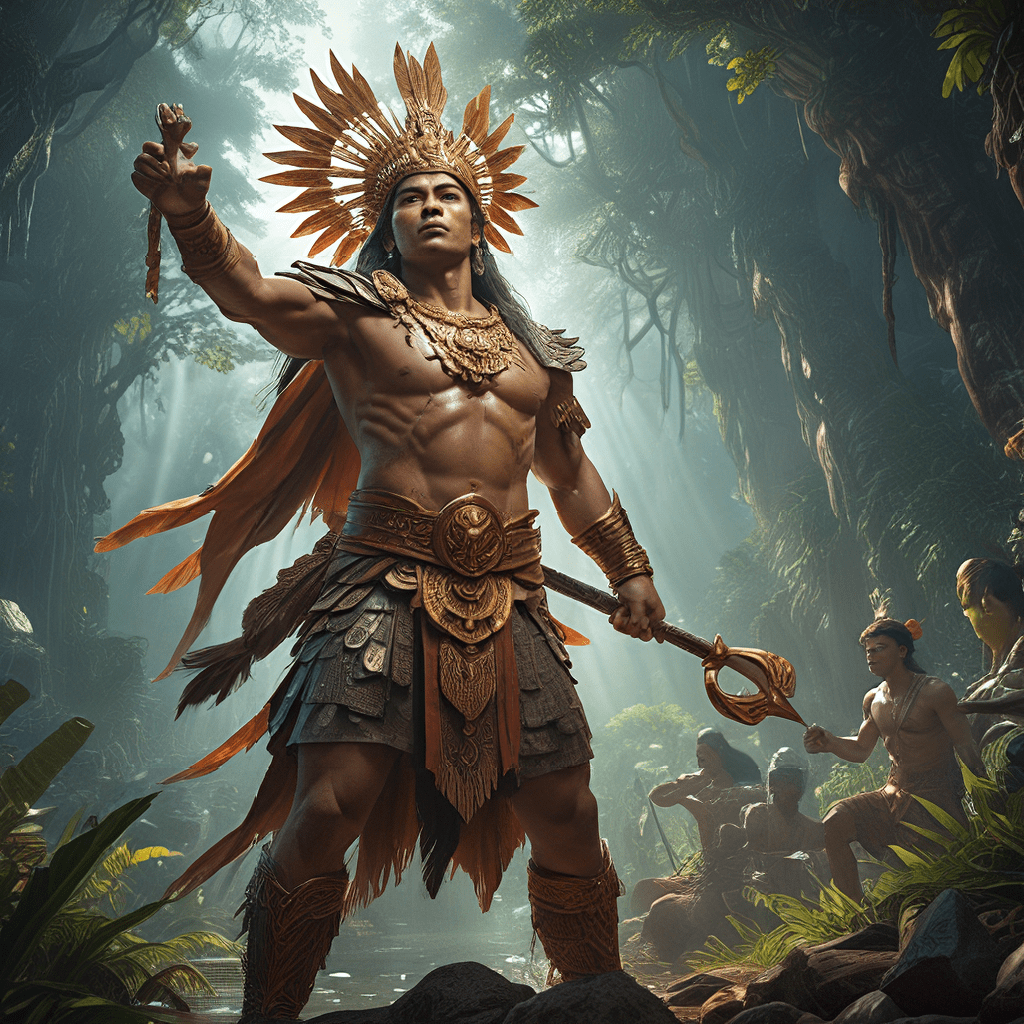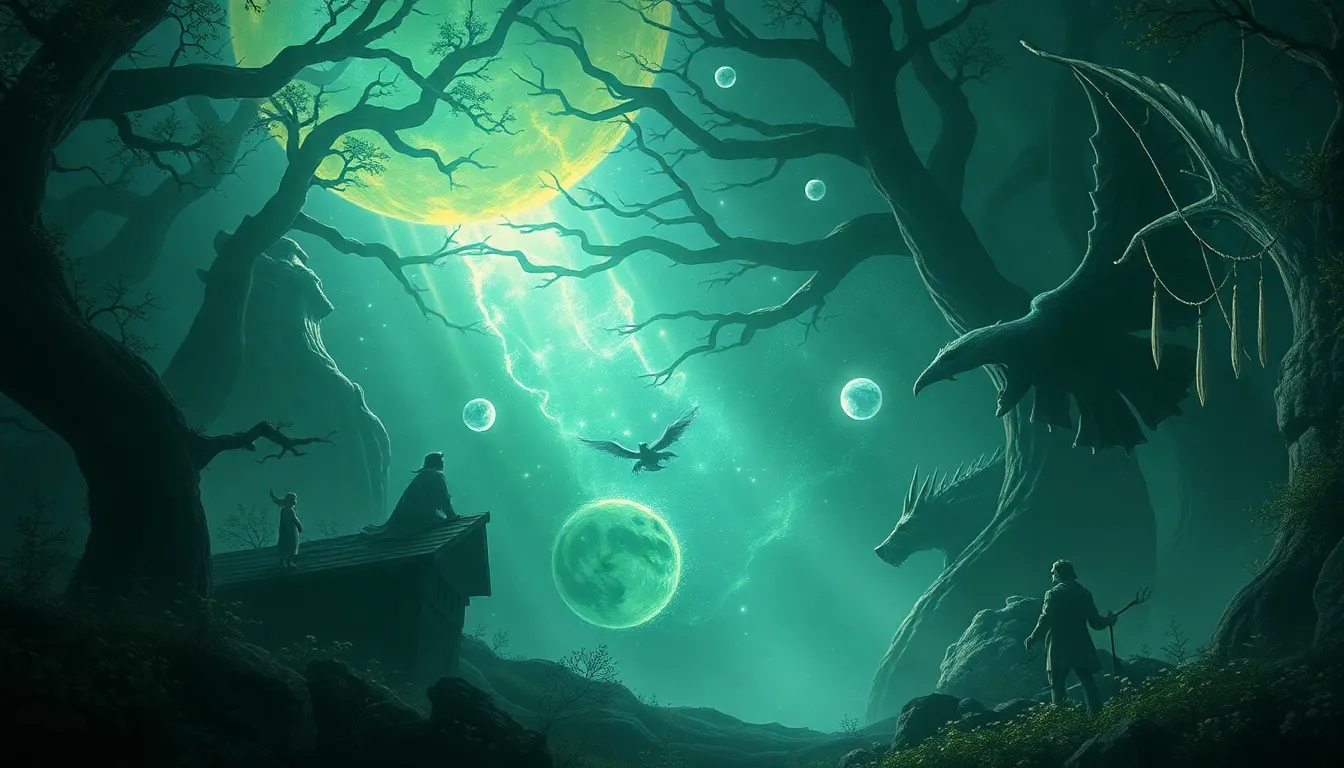The Role of Ancient Deities in Shaping Human Culture
I. Introduction
Ancient deities refer to the gods and goddesses worshipped by various civilizations throughout history, serving as focal points for cultural beliefs and practices. These entities were not merely figments of imagination but embodied the values, fears, and aspirations of the societies that revered them.
The importance of ancient deities in human history is profound, as they have influenced governance, art, literature, and social structures. This article explores the multifaceted role of ancient deities in shaping cultures, examining their historical context, mythological significance, moral frameworks, artistic representations, and their enduring legacy in modern society.
II. Historical Context of Ancient Deities
The emergence of polytheism marked a significant turn in human spirituality. Early societies often worshipped multiple deities, each representing different aspects of life and nature. This polytheistic approach allowed for a rich tapestry of beliefs that could adapt to the complexities of human experience.
Across civilizations, ancient religions exhibited both similarities and differences. For instance:
- In Ancient Egypt, gods like Ra and Osiris personified the sun and the afterlife.
- In Mesopotamia, deities such as Enlil and Inanna were central to agriculture and love, respectively.
- Greek mythology introduced gods like Zeus and Hera, who embodied human traits and emotions.
Over time, many cultures transitioned from polytheism to monotheism, exemplified by the rise of Abrahamic religions. This shift reflected changing societal values and the desire for a more unified spiritual framework.
III. Mythology and Storytelling
Myths served crucial functions in ancient cultures, offering explanations for natural phenomena, human behavior, and societal norms. They acted as a lens through which people understood their world and their place in it.
Deities often reflected the values and norms of their societies. For example, the Greek goddess Athena represented wisdom and warfare, embodying the Greek ideal of a balanced intellect and strength.
Moreover, religious narratives preserved historical knowledge, intertwining fact with fiction. These stories provided a means of passing down cultural heritage through generations.
IV. Deities and Moral Frameworks
Ancient deities played a crucial role in establishing moral codes that guided human behavior. Many societies derived their laws and ethical standards from divine commandments, which were believed to be sanctioned by the gods.
The influence of divine laws on legal systems is evident in various cultures. For instance:
- The Code of Hammurabi in Mesopotamia was said to be given by the god Marduk.
- In Judeo-Christian contexts, the Ten Commandments form a foundational ethical framework, believed to be divinely ordained.
This divine connection lent authority to these moral codes, shaping the legal systems that govern societies to this day.
V. Deities in Art and Literature
Artistic representations of deities have flourished throughout history, capturing their essence and significance. Ancient sculptures, pottery, and paintings often depicted gods and goddesses in human-like forms, emphasizing their connection to human experiences.
Literature and poetry have also been heavily influenced by ancient deities. Works such as Homer’s “Iliad” and Virgil’s “Aeneid” illustrate the interplay between gods and mortals, reflecting cultural values and human dilemmas.
Modern interpretations of ancient themes continue to resonate, with contemporary artists and writers drawing inspiration from these timeless narratives.
VI. Festivals and Rituals
Religious festivals honoring deities served as significant cultural events, fostering community cohesion and spiritual engagement. These celebrations often involved:
- Rituals and offerings to appease the gods.
- Public displays of devotion and gratitude.
- Artistic performances, including music and dance.
A case study of ancient Greek festivals, such as the Panathenaea, illustrates their societal impact. These celebrations honored the goddess Athena and reinforced civic identity and unity among the citizens of Athens.
VII. Deities and Social Structures
Deities often played a pivotal role in legitimizing political authority. Rulers frequently claimed divine right, asserting that their power was sanctioned by the gods.
Additionally, the patronage of arts and sciences by deities encouraged cultural advancements. For example, the Muses in Greek mythology inspired creativity and intellectual pursuits.
Religious beliefs also influenced social stratification, often determining roles within society based on perceived divine favor or occupation associated with particular deities.
VIII. Cross-Cultural Influences
The interchange of deities between cultures has been a defining characteristic of human spirituality. As societies interacted, they often adopted and adapted each other’s gods, leading to syncretism. This blending of religious practices illustrates the fluid nature of cultural beliefs.
The impact of globalization has further accelerated these exchanges, allowing ancient deities to influence modern spirituality and practices across diverse cultures.
IX. The Legacy of Ancient Deities in Modern Culture
Contemporary representations of ancient deities can be seen in various forms, from literature and films to art and fashion. These figures continue to inspire creativity and exploration of human experience.
The influence of ancient deities on modern spirituality is profound, with many people drawing from ancient wisdom to navigate contemporary challenges.
Furthermore, ancient themes find their way into popular culture, as seen in blockbuster films like “Clash of the Titans” and literary works such as Rick Riordan’s “Percy Jackson” series, which reimagine ancient myths for new audiences.
X. Conclusion
In summary, ancient deities have played a significant role in shaping human culture, influencing moral frameworks, artistic expressions, and social structures. Their stories have preserved historical narratives and reflected the values of their time.
The enduring influence of ancient deities is a testament to their relevance in today’s world. As we continue to explore these rich narratives and their implications, we gain insights into the human experience and the cultural fabric that binds us across time.
Studying ancient deities not only enriches our understanding of history but also offers a lens through which to view contemporary spirituality and cultural identity.




